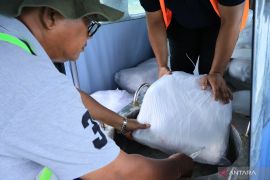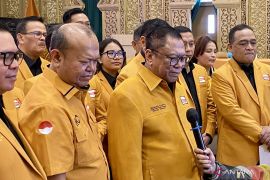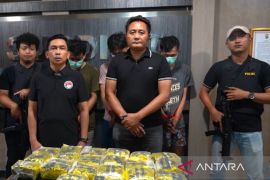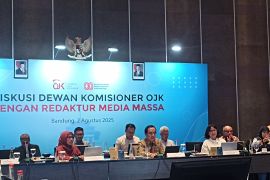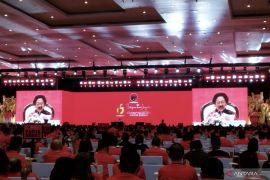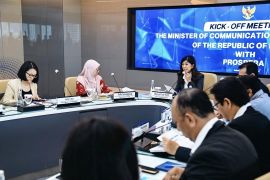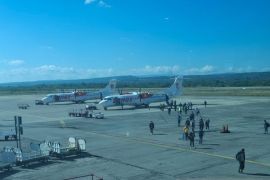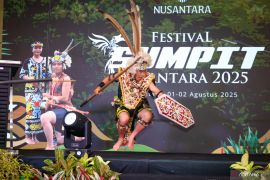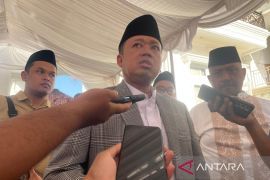The project is being undertaken as mandated in the recommendations of the Asia-Africa Conference (AAC) Commemorative Summit held in Jakarta and Bandung, in April 2015.
The basic concept of the village, which would become a tourist attraction, was, in fact, formulated 11 years ago, the governor said.
"We welcome the generosity of the Provincial Government of West Java in providing a venue in Bandung, Indonesia, for the establishment of an Asian African Village in celebration of the mutual bond of friendship between Africa and Asia," a joint ministerial statement on the new Asian-African strategic partnership plan of action said. The meeting was held in Bandung, in 2005, in conjunction with the Commemoration of the Golden Jubilee of the Asian-African Conference of 1955.
The concept of the Asian-African village will be similar to the Beautiful Indonesia in Miniature Park (TMII) in Jakarta, where visitors can see replicas of various traditional houses existing in every region in the country.
The new village will become a "show room" for African and Asian countries to display replicas of their traditional houses and heritage.
Deputy District Head of West Bandung Yayat T Soemitra said the village will be built in a tea plantation area of Mandalawangi Maswati (Walini), covering 350 hectares of land.
The Asian and African miniature village will be a way to remember the historic event that had brought the great leaders of Asian and African countries together 61 years ago, Yayat remarked.
He explained that of the total land area, 300 hectares will be used for the preservation of the tea plantation, and about 40 hectares will become a park of "Asia and Africa in miniature."
Meanwhile, the remaining 10 hectares will be allocated to set up statues as a tribute to the initiators of the AAC, such as Indonesias first president Sukarno, and former Indian Prime Minister Jawaharlal Nehru.
"It is planned that statues of Nehru and Soekarno will be built. The construction of the village is to cost around Rp400 billion. Investors are ready," Yayat said recently.
Bandung, the capital of West Java Province, has been known as a historical city for hosting the first Asian-African Conference in April 1955, which was attended by leaders from 29 Asian and African countries.
The conference was held only ten years after Indonesia announced its independence, and yielded a Dasasila (Ten Principles) Bandung Declaration, which became the guideline for the colonized countries in fighting for their independence.
It also became the fundamental principle in promoting world peace and international cooperation.
The AAC 1955 was the first international assembly of Asian-African nations aimed at promoting world peace and cooperation, and freedom from colonialism and imperialism.
The core principles of the Bandung Conference were political self-determination, mutual respect for sovereignty, non-aggression, non-interference in internal affairs, and equality.
Among the world leaders taking part in the Bandung Conference were U Nu of Burma (Myanmar), Jawaharlal Nehru of India, Mohammed Ali Jinnah of Pakistan, Sir John Kotelawala of Ceylon (Sri Lanka), the Grand Mufti Sheikh Muhammad Amin Al-Husaini of Palestine, Chinese Prime Minister Zhou Enlai, and Sukarno of Indonesia as the host.
Gedung Merdeka, which literally means the Building of Freedom and is at Jalan Asia Afrika Number 65, Bandung, where the Asian and African leaders met 61 years ago, has been designated as the Museum of Asian and African Conference.
The museum was inaugurated by the then President Soeharto on April 24, 1980 coinciding with the 25th anniversary of the Asian-African Conference.
The museum initiated by the then Indonesian Foreign Minister Mochtar Kusumaatmadja, is aimed at memorializing the venue of the Asian-African Conference that became the source of inspiration and motivation for the nations in the two continents.
In recognition of the significance of the Asian-African Conference, the United Nations Educational, Scientific and Cultural Organization (UNESCO) has inscribed the ACC archives in the Memory of the World International Register.
With the inclusion of the AAC archives in the Memory of the World Register, the international community will now have access to the AAC documents that highlight world peace, independence, freedom, the welfare of human beings, and internationalism.
The AAC Archives comprise a set of documents, pictures, and films related to the conference.
In commemorating the 60th Anniversary of the AAC and the 10th Anniversary of the New Asian African Strategic Partnership (NAASP), the Indonesian government hosted a series of summits under the theme, "Strengthening South-South Cooperation to Promote World Peace and Prosperity," in Jakarta and Bandung from April 19 - 24, 2015. ***4***
(f001/INE)
06-02-2016 20:55:38
Reporter: Fardah
Editor: Fardah Assegaf
Copyright © ANTARA 2016

